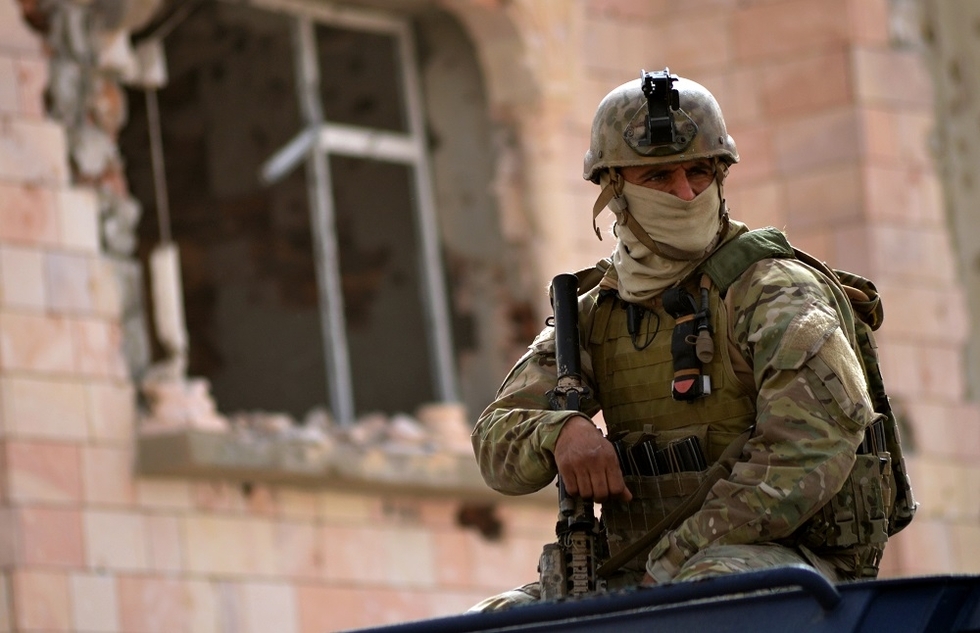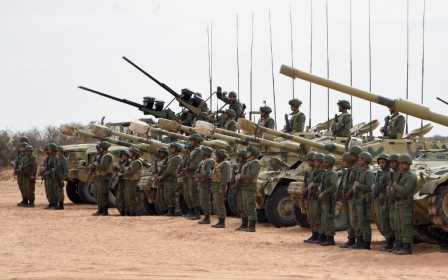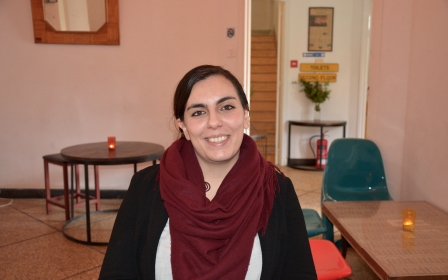Tunisia extends state of emergency but re-opens Libya border

Tunisia on Tuesday extended its state of emergency by another three months amid continuing concerns about the threat to the region posed by the Islamic State (IS) group.
The emergency measures were imposed after a November suicide bombing targeting the presidential palace in Tunis claimed by IS that killed 12 presidential guards.
However, authorities did re-open the border with neighbouring Libya which had been closed for two weeks following a deadly raid by IS on a key border town in which seven civilians and 13 security personnel were killed.
Forty-nine suspected IS militants have also been killed in clashes immediately following the attacks and in subsequent raids.
The move came as Tunisia hosted talks with other countries neighbouring Libya on the threat posed by IS's presence in the North African nation.
In a joint statement after the meeting, delegates from Algeria, Chad, Egypt, Niger and Sudan, as well as the UN envoy to Libya, said that the UN-backed government must take office as quickly as possible in Tripoli to help tackle the growing influence of IS.
Both the Ras Jedir crossing on the Mediterranean coast and the Dehiba crossing in the mountainous desert interior reopened at 0600 GMT, ministry spokesman Yasser Mesbah said.
An official of the main organisation that looks after the interests of Tunisians working abroad said traffic at Ras Jedir was still light in mid-morning and consisted mainly of goods lorries. Customs officers were carrying out "painstaking searches" of every vehicle, sources at the crossing told AFP.
Tunisia has suffered from a wave of militant attacks in recent years, as it has struggled to prevent radicalisation and ensure security since the 2011 revolution that ousted longtime President Zine El Abidine Ben Ali.
Last year IS claimed responsibility for attacks on the Bardo museum in Tunis and a popular resort hotel that killed 59 tourists in total, as well as the suicide bombing that killed the presidential guards in November.
Thousands of Tunisians are believed to have travelled abroad to join militant groups, many of them to Libya where IS has been able to expand its presence.
Tunisia also closed its border with Libya for more than two weeks following the raid on the palace.
Last month, Washington carried out an air strike on an IS training camp in Libya that killed dozens of militants, probably including the suspected Tunisian mastermind of two of the attacks.
Britain has also sent troops to train Tunisian forces guarding the Libyan border, around half of which has been fortified in recent months.
Ghannouchi calls for different approach
The head of Tunisia's main Islamist party Ennahda, Rached Ghannouchi, said on Tuesday that the military force and security measures alone are not enough to fight violent groups like IS.
"The fight against terrorism must not be limited to the military and security approach, which could even complicate the problem in the short and long run," the 74-year-old Ghannouchi told an audience at the Al-Jazeera Forum in Doha.
We must also add "a political dimension by strengthening democracy, the economy, and development" to stem unemployment, especially among young people, he said.
Ghannouchi said his country was making strides against militants despite the string of attacks.
"We have defeated dictatorship in Tunisia and we hope we are on our way towards defeating terrorism," he said, while rejecting any links between militant behaviour and religion, saying Islam is "unrelated to terrorism".
He was speaking before the full extent of Tuesday's attacks on the Brussels airport and metro, which together claimed more than 30 lives, was known.
Middle East Eye propose une couverture et une analyse indépendantes et incomparables du Moyen-Orient, de l’Afrique du Nord et d’autres régions du monde. Pour en savoir plus sur la reprise de ce contenu et les frais qui s’appliquent, veuillez remplir ce formulaire [en anglais]. Pour en savoir plus sur MEE, cliquez ici [en anglais].



